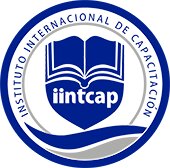Best Water Law Lawyers in Dominican Republic
Share your needs with us, get contacted by law firms.
Free. Takes 2 min.
Or refine your search by selecting a city:
List of the best lawyers in Dominican Republic
About Water Law in Dominican Republic
Water Law in the Dominican Republic refers to the body of laws, regulations, and norms that govern the use, allocation, protection, and management of water resources throughout the country. These laws are particularly important for a nation where water serves vital roles in agriculture, energy production, public health, tourism, and daily life. Dominican Water Law includes constitutional provisions, specialized statutes such as Law 5852 of 1962 and Law 64-00 on Environment and Natural Resources, and a range of administrative decrees and technical guidelines. The legal framework aims to ensure sustainable management of water resources, regulate access, prevent pollution, and resolve conflicts over water use.
Why You May Need a Lawyer
There are a variety of situations in which individuals, companies, or communities may need the assistance of a Water Law lawyer in the Dominican Republic. Common scenarios include disputes over water rights between neighbors or landowners, legal challenges regarding permits for irrigation or industrial use, contamination of rivers or groundwater, conflicts involving tourism development and hotel water usage, and complex interactions involving hydroelectric projects. Additionally, real estate transactions may require verification that properties have legal and secure access to water. Businesses operating in agriculture, industry, or construction often need legal advice to comply with government regulations, avoid penalties, and maintain sustainable operations.
Local Laws Overview
The Dominican Republic’s legal framework for water is primarily based on Law No. 5852 from 1962, which governs water rights and administration, as well as Law 64-00 on Environment and Natural Resources, which broadens environmental responsibilities and introduces new requirements for water management. The state is recognized as the owner of all water resources, with private parties, municipalities, or businesses only able to use water through permits or concessions granted by competent authorities, primarily the Instituto Nacional de Recursos Hidráulicos (INDRHI) and Ministerio de Medio Ambiente y Recursos Naturales. Key aspects of local legislation include mandatory water use permits, regulation of wastewater discharges, special protections for sources of potable water, and national priority for water supply and sanitation. Ongoing government efforts also address modernization and stricter enforcement of water regulations.
Frequently Asked Questions
What is considered a water right under Dominican law?
A water right is the legal authorization, usually granted by a government agency, to use a specific quantity of water from a river, lake, spring, or groundwater for a particular purpose, such as irrigation, drinking, or industrial use.
Do I need a permit to use water from a river or a well on my property?
Yes, Dominican law requires that a permit or concession be obtained from INDRHI or the relevant authority before any significant use of surface or underground water, regardless of property ownership.
Who owns the water resources in the Dominican Republic?
All natural water resources are publicly owned by the state. Individuals and entities have the right to use water only under permits or concessions, not by ownership.
How are water pollution and contamination regulated?
The Ministry of Environment and Natural Resources establishes standards and regulates wastewater discharge, aims to prevent pollution, and can penalize violators. Law 64-00 provides environmental protections and legal recourse for pollution events.
Can my neighbor divert water from a river that passes through my land?
No, any diversion or use of river water requires authorization from the relevant authorities. Unauthorized diversions can be challenged legally and may result in sanctions.
Are there protections for drinking water sources?
Yes, the law mandates special safeguards for areas that supply potable water to communities, limiting uses and imposing strict penalties for contamination or unauthorized development.
What agency is responsible for granting water use permits?
The main agency is the Instituto Nacional de Recursos Hidráulicos (INDRHI), although the Ministry of Environment is also involved, especially in environmental impact and pollution control matters.
Does water law affect real estate development?
Yes, all new developments must demonstrate legal access to water and comply with environmental and water use regulations, including possible environmental impact assessments.
Can permits be revoked or modified?
Yes, permits and concessions can be revoked, modified, or suspended if conditions are violated, if water is misused, or if priorities change in response to national interests or emergencies.
How can I enforce my water rights or resolve a conflict?
Water right disputes are typically addressed through administrative reviews by INDRHI and may proceed to judicial courts if necessary. Legal counsel is highly recommended in these cases.
Additional Resources
If you need more information or guidance on Water Law in the Dominican Republic, the following resources can be helpful:
- Instituto Nacional de Recursos Hidráulicos (INDRHI) - Main regulatory body for water resources
- Ministerio de Medio Ambiente y Recursos Naturales - Environmental protection and pollution control
- National Water Observatory - Data and reports on water quality and availability
- Local environmental or farmers’ associations - For community-level support
- Law schools and legal clinics at Dominican universities that offer free or low-cost legal aid
Next Steps
If you need legal assistance in Water Law, it is important to begin by gathering all relevant documents including any property deeds, previous permits, concession documentation, and correspondence with government agencies. Consider consulting with a specialized Water Law attorney who can interpret local regulations, guide you through required administrative or judicial procedures, and represent your interests effectively. Contact INDRHI or the Ministry of Environment to clarify current guidelines and application procedures for water use or dispute resolution. For urgent situations involving potential harm or environmental risk, seek immediate legal and governmental intervention. Acting quickly and documenting your case will help protect your rights and interests.
Lawzana helps you find the best lawyers and law firms in Dominican Republic through a curated and pre-screened list of qualified legal professionals. Our platform offers rankings and detailed profiles of attorneys and law firms, allowing you to compare based on practice areas, including Water Law, experience, and client feedback.
Each profile includes a description of the firm's areas of practice, client reviews, team members and partners, year of establishment, spoken languages, office locations, contact information, social media presence, and any published articles or resources. Most firms on our platform speak English and are experienced in both local and international legal matters.
Get a quote from top-rated law firms in Dominican Republic — quickly, securely, and without unnecessary hassle.
Disclaimer:
The information provided on this page is for general informational purposes only and does not constitute legal advice. While we strive to ensure the accuracy and relevance of the content, legal information may change over time, and interpretations of the law can vary. You should always consult with a qualified legal professional for advice specific to your situation.
We disclaim all liability for actions taken or not taken based on the content of this page. If you believe any information is incorrect or outdated, please contact us, and we will review and update it where appropriate.
Browse water law law firms by city in Dominican Republic
Refine your search by selecting a city.














